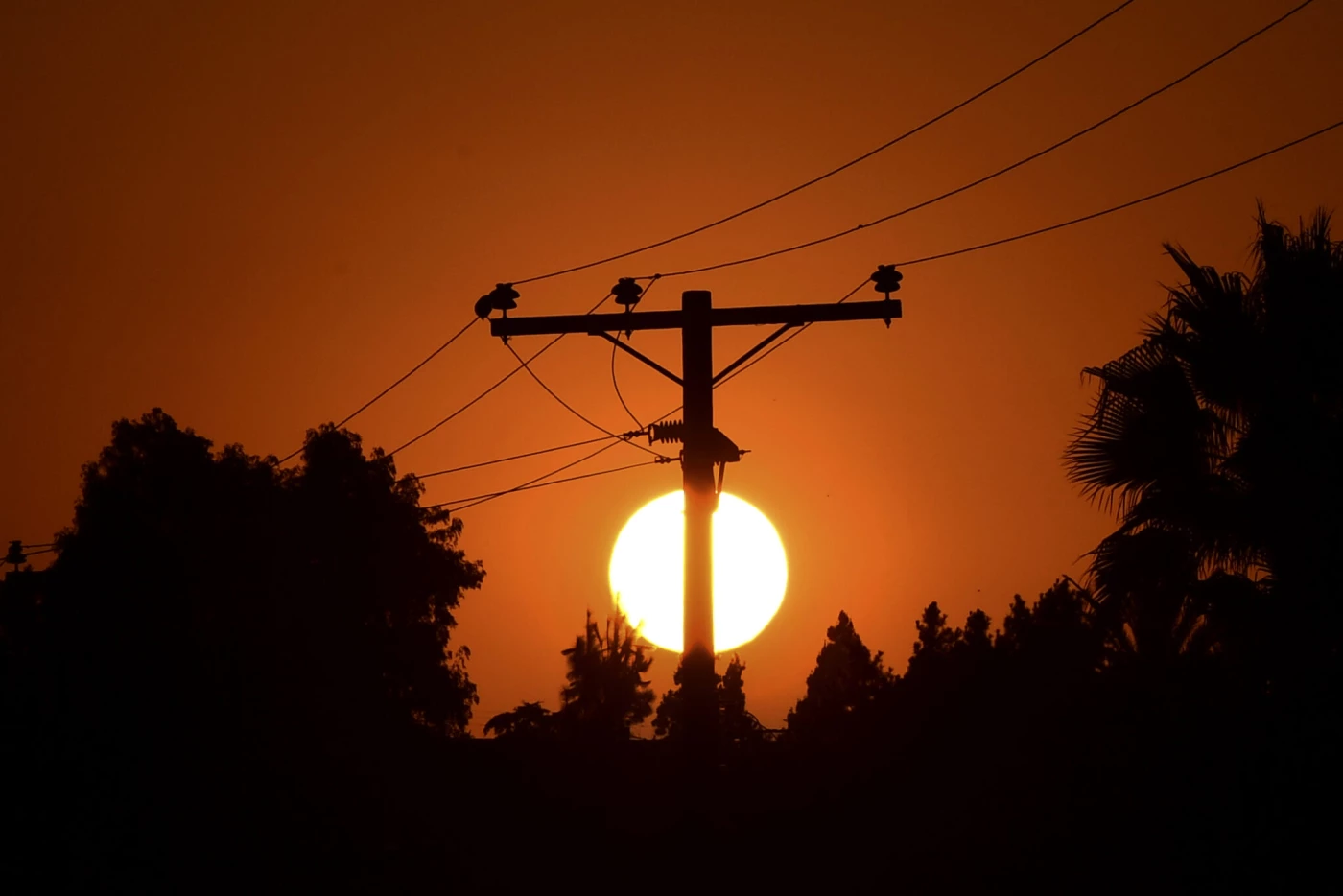ERBIL, Kurdistan Region of Iraq - For many years, Iraq’s electricity crisis has remained at the top of the country’s chronic problems. With every scorching summer, discussions over possible solutions resurface, the most prominent being privatization, promoted as an inevitable choice to rescue the collapsing system. Yet while the Kurdistan Region has fully applied privatization and made significant progress in the energy sector, the federal government’s efforts have largely failed, leaving the rest of Iraq facing recurring blackouts and growing frustration.
The partial privatization experiment launched by the Ministry of Electricity involved outsourcing power supply in residential areas to private investment companies. These companies were tasked with maintaining transformers and distribution networks, preventing illegal connections to the national grid, and collecting bills in exchange for providing citizens with 24 hours of electricity.
Successive Iraqi governments presented privatization as a way out of the cycle of blackouts and the loss of about 40 percent of production due to waste and theft. But the reality hit a wall of broad public rejection. Citizens, already burdened with heavy bills from neighborhood generators, saw privatization as another scheme to make them pay the price of state failure rather than a reform plan to end their suffering.
Wasit rejects the project
Strengthening both political and popular opposition to the project, Rahman Dalfi, a member of the Wasit Provincial Council, affirmed that the council is determined to reject the privatization of electricity in the province. He stressed that the decision is based on clear legal grounds and that the federal government has no right to punish Wasit for holding this position.
Dalfi said the privatization issue has become the “main preoccupation” in Wasit recently, both at the street level and in official institutions. He explained that the rejection is “absolute and comprehensive, uniting popular and official circles alike, while the council has definitively settled its stance against the project.”
He clarified that “the council’s decision is not based solely on political considerations but rests on Article 115 of the federal constitution, which grants priority to local governments in cases of conflict with federal authority.” He added that “therefore, the rejection has a clear constitutional basis that cannot be easily bypassed or overturned.”
Dalfi criticized the federal government for its inability so far to provide citizens with stable 24-hour electricity, saying that “it is unacceptable to impose privatization and electronic billing on people while the most basic service requirements are missing.”
“When we can ensure all the necessary resources and provide full electricity, then we can talk about privatization,” he added. “But under the current conditions, it is completely unacceptable.”
He noted that local authorities, both legislative and executive, are maintaining communication and official correspondence with the federal government to present their stance and explain their reasoning. He denied that the disagreement could escalate into sanctions or punitive measures, affirming that “the province has leverage, most notably the presence of the Zubaidiya power plant within its territory, which gives it broader room for negotiation and pressure to push for realistic and logical solutions to the issue in the coming period.”
Thus, the issue of electricity privatization in Wasit remains one of the most notable examples of confrontation between local governments and the federal administration, amid growing controversy between supporters, who view privatization as an escape from the energy crisis, and opponents, who see it as an additional burden on citizens.
The crisis intensifies with rising summer temperatures, population growth, and increased use of air conditioning, which all make it difficult for the electricity grid to keep up with demand. The country needs between 50,000 and 55,000 megawatts during peak hours in the height of summer.
The problem is not limited to political and popular opposition. Deeper obstacles exist, such as the absence of infrastructure needed to apply modern systems like smart meters, in addition to conflicts of interest among influential groups. Networks of private generator owners, fuel import mafias, and powerful economic actors have all worked to undermine privatization, as it was not in their interest to see a system that curbs their massive profits and restores order to the energy market.
Experts see no solutions ahead
In this context, energy and economic expert Nabil al-Marsoumi ruled out the possibility of solving Iraq’s electricity crisis even within the next ten years, attributing this to the absence of a capable state and the rule of law. This, he said, has led to fragmented political and administrative decision-making and worsened crises across various sectors, foremost among them electricity.
Speaking to The New Region, Marsoumi said, “The problem does not lie only in technical or engineering aspects, but in the nature of the economic management system, which has proven its failure. Added to that is the spread of financial corruption within state institutions, including the Ministry of Electricity, which has made the crisis even more complicated.”
He added that the ministry’s justification for recent outages as a “technical failure” does not seem convincing or logical. In his words, the electricity crisis has turned into a “complex and compounded crisis” that has gone far beyond accidental malfunctions and has become resistant to traditional solutions.
Engineer and electricity expert Khalifa al-Munhil attributed the chronic instability of Iraq’s power system to a set of interrelated factors, chiefly the widening gap between the ever-growing demand for electricity and what is produced locally or imported from abroad. This gap, he said, leaves the grid unable to meet consumer needs.
Munhil told The New Region that “the weak reliability of transmission lines is itself a fundamental cause of the crisis. A large portion of these lines are dilapidated due to age, while another part suffers repeated disconnections because of overloads, leading to cascading blackouts that can knock major generation units offline and even disable entire power plants.”
He added that the situation is made worse by some provinces not adhering to their allocated electricity quotas, in addition to periodic sabotage attacks on the grid that further weaken it.
A previous study on the electricity sector noted that Iraqis spent nearly $4 billion on private generators in 2018, a massive market closely tied to certain politicians and militia leaders, often referred to as the “generator mafia.”
Falling global oil prices have also compounded the problem, as reduced oil revenues mean fewer funds are allocated to the electricity sector amid Iraq’s enormous budget deficit.
The “electricity privatization project” began under former Prime Minister Haider al-Abadi (2014-2018). It was applied in several residential districts of Baghdad, and while it proved more successful in those areas compared to private generators, the project faced both political and popular criticism for various reasons, leading to its halt before it could expand to other parts of the capital or to other provinces.
Some specialists argue that privatization could be the ultimate solution to Baghdad’s electricity problems. Others, however, believe it might simply reproduce the same challenges in a different form, since past experiences with privatizing other sectors have not always been successful. In the current economic climate, they caution, privatization could open up a new field of difficulties rather than resolve existing ones.
Kurdistan Region paints a different picture
On the other side of Iraq, the Kurdistan Region presents a completely different picture. The experience there was not limited to applying privatization alone. For years, the Region has relied on involving the private sector in managing and distributing electricity. Billing was regulated, infrastructure was upgraded, and smart meters were installed in homes and institutions, steps that resulted in a relatively stable power supply for citizens compared to the hardships faced by residents of central and southern Iraq.
According to officials, Erbil succeeded in attracting both local and foreign companies that worked to develop the grid and diversify energy sources. This progress has allowed citizens of the region to view electricity as a stable and guaranteed service, while the rest of Iraq’s population remains trapped in promises that have gone unfulfilled for two decades.
This contrast raises a fundamental question: why was the region able to turn privatization into a success story, while the central government failed to generalize it? Specialists point to a mix of reasons, including the absence of political will in Baghdad, the dominance of vested-interest mafias, and the public’s loss of trust in the state.



 Facebook
Facebook
 LinkedIn
LinkedIn
 Telegram
Telegram
 X
X


